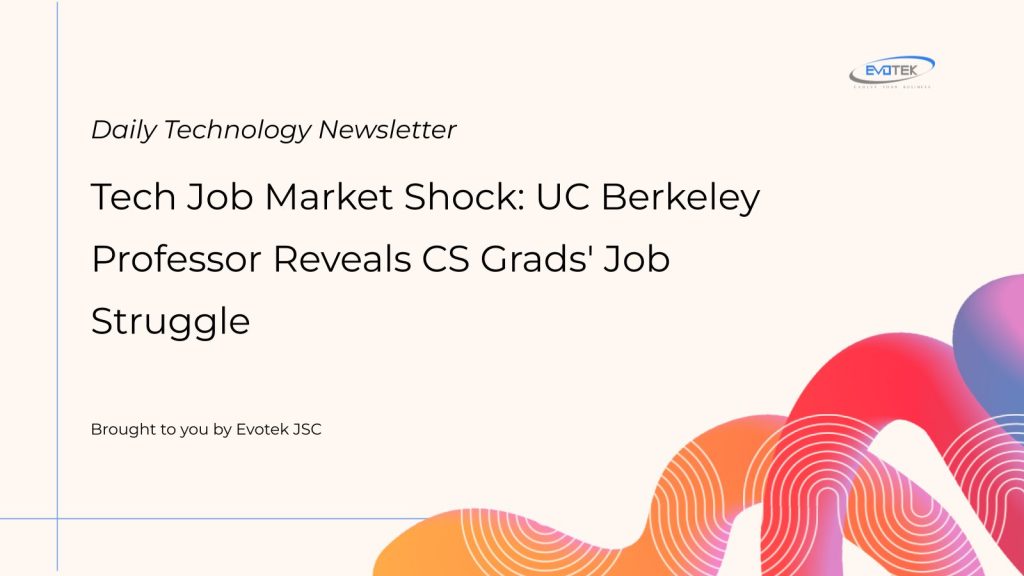The landscape for computer science graduates is undergoing a profound and rapid transformation, with even top-tier students facing unprecedented challenges in securing employment. UC Berkeley professor Hany Farid, a leading voice in computer science, highlights a stark departure from the once “future-proof” career path, observing that “everybody” is now struggling to land jobs.
A Rapid Shift in Computer Science Careers
Farid notes a dramatic change over just four years. What was once heralded as a guaranteed pathway to a successful career has quickly become an industry grappling with uncertainty. On a recent episode of Nova’s “Particles of Thought” podcast, Farid expressed his astonishment at this swift evolution, stating, “That changed in four years. That is astonishing.”
This sentiment is echoed by the struggles faced by current students. Professor Farid shared observations from UC Berkeley, home to one of the nation’s premier computer science programs. Historically, Berkeley students would receive multiple internship offers throughout their college years, graduating with numerous job opportunities and exceedingly high salaries. “They had the run of the place,” Farid remarked. Today, the reality is vastly different, with graduates often feeling fortunate to secure a single job offer.
Beyond AI: A Confluence of Industry Changes
While artificial intelligence (AI) frequently takes center stage in discussions about tech job disruption, Farid cautions against overly simplistic explanations. He suggests that the current difficulties stem from a complex “confluence of many things.”
“Something is happening in the industry,” Farid explained. “I think AI is part of it. I think there’s a thinning of the ranks that’s happening, that’s part of it, but something is brewing.”
This perspective resonates with broader debates within Silicon Valley, where concepts like “vibecoding” and AI’s growing capability to generate software contribute to industry concerns. OpenAI chairman Bret Taylor has also emphasized the importance of fundamental computer science concepts that extend beyond mere coding proficiency.
Evolving Advice for Aspiring Tech Professionals
As one of the world’s foremost experts on deepfake technology, Farid is frequently sought out for career advice. He reveals that his guidance for students has significantly evolved to adapt to the new industry realities.
Previously, Farid advocated for a broad education coupled with deep specialization in one area—encouraging students to become exceptionally skilled in a singular domain. However, his advice has now pivoted:
“Now, I think I’m telling people to be good at a lot of different things because we don’t know what the future holds.”
The Critical Role of AI Adoption Across Professions
Farid underscores a crucial lesson for the modern workforce: the strategic adoption of breakthrough technologies like AI is paramount for career longevity and success. He argues that AI will not entirely eliminate professions, but rather redefine them for those who embrace it.
“I don’t think AI is going to put lawyers out of business, but I think lawyers who use AI will put those who don’t use AI out of business,” Farid asserted. “And I think you can say that about every profession.”
This insight highlights the imperative for professionals across all sectors to integrate AI into their skill sets to remain competitive in a rapidly changing global economy.

 日本語
日本語 한국어
한국어 Tiếng Việt
Tiếng Việt 简体中文
简体中文